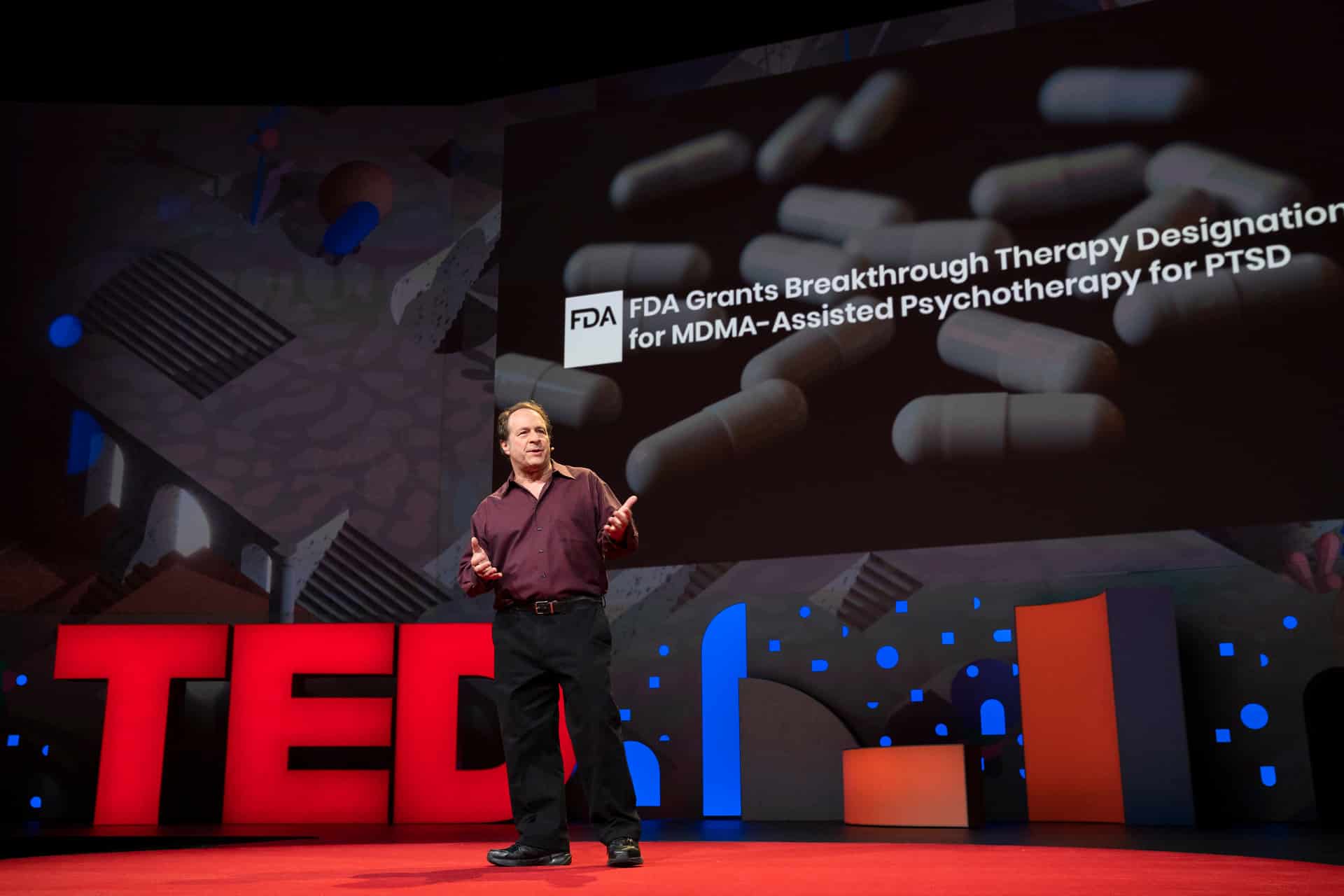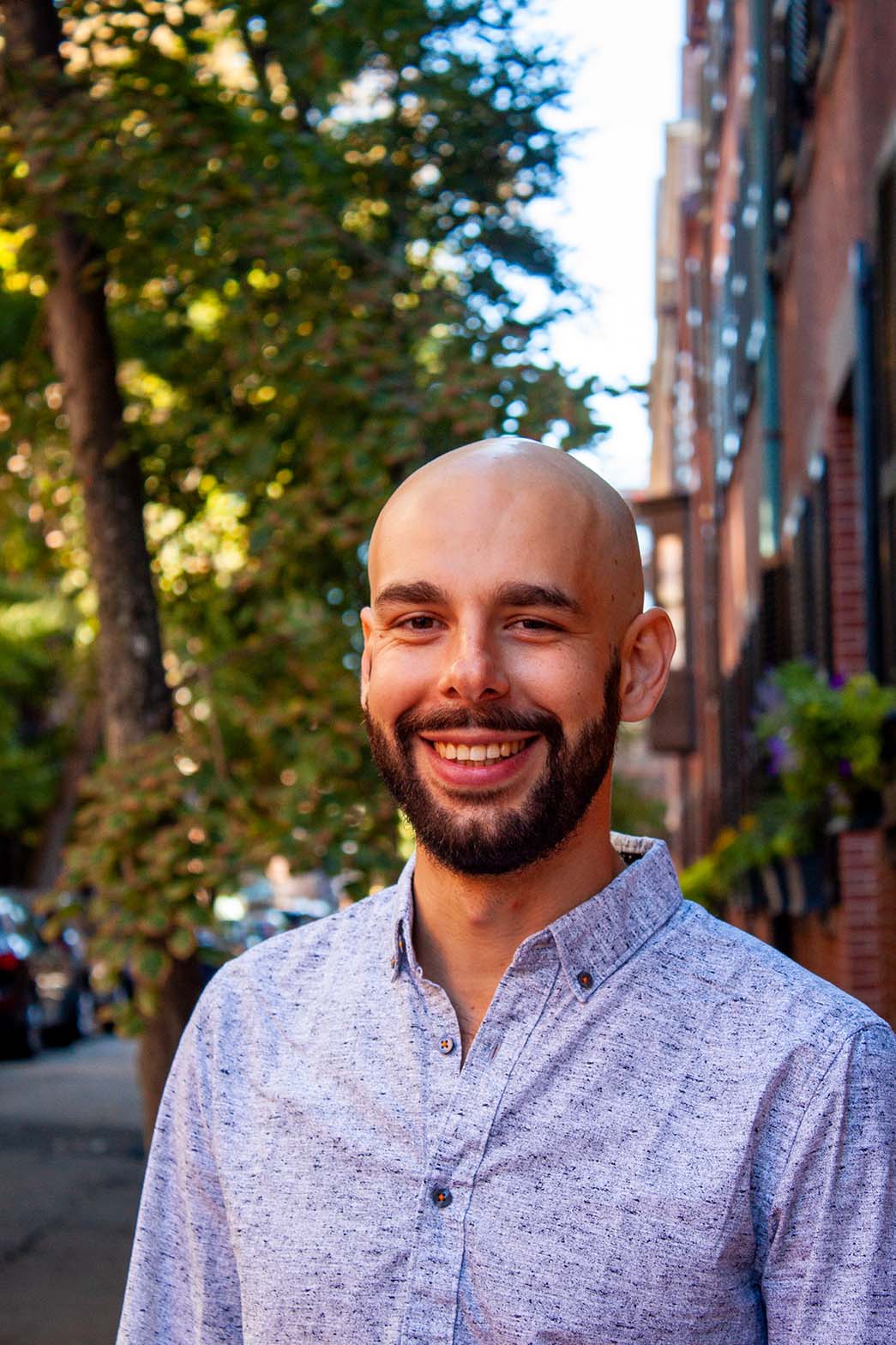One of the biggest social and cultural movements currently sweeping the civilized world is what’s being called the “Psychedelic Renaissance.” That is the name for today’s wildfire-like reemergence, in mainstream culture, science, and medicine, of psychedelic drugs such as LSD, psilocybin, and MDMA, which were outlawed in in the late 1960s, 1970s, and 1980s, respectively.
Less than a decade ago, these substances—listed by the Drug Enforcement Administration (DEA) as Schedule I drugs—were almost completely prohibited for all recreational, research, and medical uses. Possession of them was as strictly punished as that of heroine. Today, they enjoy a deluge of positive coverage in major news outlets, literature, and digital media, such as in Michael Pollan’s bestselling book How to Change Your Mind (and later his Netflix series of the same name).
The FDA has granted “breakthrough therapy status” to psilocybin (the active ingredient in magic mushrooms) and MDMA (otherwise known by its street name “ecstasy”) for the medical treatment of Treatment-Resistant Depression and Post Traumatic Stress Disorder (PTSD), respectively. Clinical and neuroscience research into the effects of these substances has become an established area of science, and departments for psychedelic research are springing up like mushrooms in top universities and hospitals. The PsychedelicScience2023 conference in Colorado attracted over thirteen thousand attendees. And the states of Colorado and Oregon have already decriminalized the possession of naturally occurring psychedelics.
At the center of this renaissance, there stands one man, the fascinating Rick Doblin, who many consider “the modern godfather of the psychedelic movement and industry.” Rick is the founder and president of the Multidisciplinary Association for Psychedelic Studies (MAPS), the organization responsible for the development, widescale clinical research, and FDA priority status of the incredibly promising MDMA-assisted psychotherapy for PTSD, as well as for hosting the biannual Psychedelic Science conference in Colorado.
When I first met Rick and heard his story, I was instantly struck by a single thing: In his personality and path to success, he was like a character straight out of an Ayn Rand novel—the Howard Roark of legalizing psychedelics!
The novelist Ayn Rand, the creator of the philosophy of Objectivism, described Howard Roark, the architect hero of her blockbuster novel The Fountainhead, as follows. Roark is a man with what is, to him, a sacred purpose in life, who pursues that purpose against an onslaught of opposition from mainstream society, which places “every conceivable hardship and obstacle” in his way and condemns him to decades of professional oblivion. Until, by the end of the book, he achieves the astronomic success he always thought was possible.
So too for Rick Doblin. In 1972, when Rick was eighteen, he had in his words “an experience with LSD that brought me a life’s mission,” to “devote myself to psychedelic research and psychedelic therapy,” the immense potential of which he had experienced firsthand. This was, however, about a year after the federal government declared all the classic psychedelics illegal, casting Rick in the role, as he described it, of “counterculture, drug-using criminal.” A decade later, Rick learned about MDMA, a synthesized psychedelic that was still legal but on the verge of becoming criminalized. Rick spearheaded what turned into a two-year legal battle against the Drug Enforcement Administration (DEA) legally challenging the drugs’ prohibition, and he won—only to have the judge’s verdict overturned a month later. MDMA was placed on the Schedule I list of prohibited substances in 1986.
After Rick founded MAPS later that year—with the mission statement of creating “a world where psychedelics…are safely and legally available for beneficial uses, and where research is governed by rigorous scientific evaluation of their risks and benefits”—for seven years, until he hired his first employee in 1993, “I was the only staff person,” he laughed. Seven years after that, in 2000, MAPS had a total of three staff members, Doblin included. It took four more years before MAPS could finally launch the first of its rigorous scientific studies into the risks and benefits of MDMA-assisted therapy, and thirteen years more before the results of those studies led to it receiving “breakthrough therapy status” in 2017.
This was the development that launched Rick on his meteoric rise and opened the floodgates of the Psychedelic Renaissance, of which he remains the leading figure. I recently interviewed Doblin—who has read The Fountainhead and Ayn Rand’s last novel, Atlas Shrugged—about these remarkable parallels. I believe his life contains a great lesson for the Objectivist and libertarian subcultures I have been a part of for nearly a decade.
Perhaps most surprisingly for modern lovers of liberty, Doblin elected to work with and within a regulatory system that most of us would consider an immoral corruption of the principles of a free society. In the process, Doblin has shifted the whole legal landscape around psychedelics, as a mere means to his end of doing psychedelic therapy and research.
In 1987, shortly after MDMA had been criminalized, and he was rejected from every clinical psychology program he applied to for his stated intention of doing his dissertation on MDMA-assisted psychotherapy, Doblin had what he called “one of the best ideas of my whole life.” He recognized that “I have this pattern in my life of wanting too much too soon.”
“I want to do this psychedelic psychotherapy research, but the world is not ready for it.” “I want to do the science, but the politics is in the way. So maybe,” he concluded, “I should study the politics.”
He changed his academic focus from psychology to law, eventually receiving his PhD from the Harvard Kennedy School of Government. “When I got the final rejection from a clinical psych PhD program,” Rick told me, he recognized this was “the end of the road” he had traveled for sixteen years. “And the turning point was to think,” he continued, that “this road has ended because of these obstacles. Now I can try to remove those obstacles. That now becomes my mission.”
Over the course of his upward climb, Doblin has taken a battering from a plethora of legal and regulatory agencies. The DEA overrode the results of the court decision he fought two years to obtain, which advised against criminalizing MDMA. The FDA rejected all his proposals for MDMA research for the next seven years, and it would reject his proposals for phase-two research for six more years after that. Once this was finally granted in 2001, Rick spent two more years having this research refused by six different Institutional Review Boards (IRBs) at six prospective research locations.
What Doblin went through was nothing less than a libertarian’s worst nightmare! And it is exactly the reason most of us give for refusing to work in a regulated industry; we rebel in outrage against wasting years and decades of our precious lives to comply with irrational bureaucratic requirements. Instead, most Objectivists and libertarians take a cue from Howard Roark and from the heroes of Atlas Shrugged: simply withdrawing from such lines of work and flocking to the less regulated portions of the private sector.
For Doblin, however, something like this was never an option. “I think that’s one of the shortcomings of Atlas Shrugged,” Doblin says, in which the heroes refuse to work under a political system that treats their life and work as its property, and retreat instead to a free utopia in a secret valley in Colorado. Because “in a world of nuclear weapons,” he says, “there are no private utopias.” “There is no escape on the planet” from a corrupt political system “that couldn’t be overwhelmed by the flaws of the system.”
“So therefore these bureaucrats,” he continues, “who are blocking things, who are trying to chain the creators to their desks and get them to accomplish nothing. You have to undo that. You cannot run away.”
It is psychedelics, in fact, that Doblin believes can help prevent nuclear war. “Since wars begin in the minds of men,” he frequently quotes the UNESCO charter, “it is in the minds of men that the defenses of peace must be constructed.” And “psychedelics,” he says, “can help us build those defenses of peace.”
From the time he conceived it, Doblin saw that his life’s sacred mission included doing his utmost to save the world. “I think why I kept at,” he said, was growing up in the 1950s and 1960s with a “molten center” of fear, “massive fear of [a second] Holocaust, of blowing up the world with the Russians, of Vietnam, of just human cruelty” in general. So “when I first started doing LSD…I guess personally, I saw the great benefit. But I also had this idea that the world is at stake…And if I don’t do this, there is no other thing as powerful to prevent humanity from self-destructing.”
“So that’s why I felt that I had to deal with these bureaucrats, there was nothing [else] I could do that would really accomplish what I needed to accomplish…I could have thought, ‘Okay, I’m going to be an underground psychedelic therapist my whole life, let’s just say screw these bureaucrats, screw the FDA, screw the DEA, you know, just have a career.'” But “no hardship that I faced was more intimidating than the fear that was inside me.” “So whatever the DEA did, or whatever the FDA did, or whatever obstacles were put in the way…it was nothing to giving up and maybe one day ending up in a concentration camp,” or to the Russians and the Americans “blowing up the world.”
“I think at the very beginning,” Doblin concluded, “what I realized is that [this] might never work. But it was still worth doing.” And it was “also clear to me that…noble projects like this [often] take multiple generations to achieve.” So “even if I couldn’t do it,” he reasoned, “then the next generations could do it.” And now “to be able, in my own lifetime, to see things turn around, is especially fortunate and sweet.”
Though most libertarians think it abhorrent to place their work at the mercy of bureaucratic fetters, Ayn Rand herself would not disapprove of Doblin’s path. “The political conditions presented in Atlas Shrugged,” she wrote, “are those of an almost total dictatorship. Only when a society reaches that stage is it proper for men to think of quitting.” But until then, “as long as a society is semifree,” you must “understand [that] no matter how hard the battle, it can be won, [and] you can break through.”

































